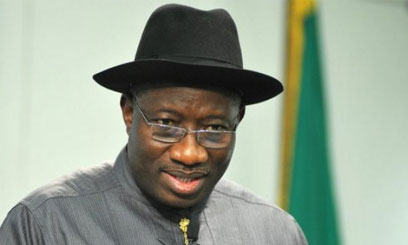The election of Jonathan, the son of a canoe maker and a so-called accidental president who initially came to office after the death of his predecessor, raised hopes for change in one of the world’s most graft-ridden nations.
He is Nigeria’s first president from a minority ethnic group as well as the first from the oil-producing Niger Delta region.
However, many analysts rate his time in office so far as a disappointment, calling his government’s response to the insurgency which has killed hundreds befuddled and citing a lack of a true commitment in attacking corruption.
His easygoing style has frustrated those who say he lacks a sense of urgency, while Jonathan’s supporters and even the president himself argue that his calmness can yield dividends.
“There is a total lack of political will to address any of the problems confronting the country,” said lawyer and prominent rights activist Femi Falana.
“Whichever way you look at it, there is no cause for celebration with respect to the last one year, and to aggravate the crisis is the unprecedented level of corruption that is going on.”
Jonathan, a zoologist by training rarely seen without the fedora hat common to natives of the Niger Delta, initially came to office as acting president of Africa’s most populous nation when his predecessor Umaru Yar’Adua fell ill.
He was sworn in as president after Yar’Adua’s death in May 2010, and decided to run in the following year’s election despite major opposition to his candidacy in the majority Muslim north.
Jonathan, a 54-year-old southern Christian, has faced enormous challenges since his election in the vote viewed as the fairest in nearly two decades despite rioting afterwards in the north that killed some 800 people.
The list of issues to tackle has often appeared intractable, including a woeful electricity supply that leads to daily power cuts and the corruption that pervades nearly every aspect of society.
Islamist group Boko Haram’s insurgency, focused in the north, has also spread fear, with its attacks having grown increasingly sophisticated.
Suicide bombers have targeted the UN building in the capital Abuja, police headquarters and one of the country’s most prominent newspapers.
There is the widespread sense that Jonathan’s intentions are good — though whether he can follow through is another matter in a country where most of the population lives on less than $2 per day despite its oil wealth.
Many have said one of his top priorities — ending a graft-ridden fuel subsidy programme — was badly mishandled. Finance Minister Ngozi Okonjo-Iweala, a respected ex-World Bank managing director, was also criticised over the move.
The bid to end subsidies abruptly and without warning on January 1 caused petrol prices to instantly double, pushing tens of thousands of people to take to the streets in protest and a week-long nationwide strike.
Jonathan was forced to compromise and partially reinstate the subsidies. A parliamentary report in April alleged Nigeria lost $6.8 billion from 2009-2011 through the corrupt subsidy programme.
Some analysts say Jonathan lacks the kind of leadership skills needed in a country such as Nigeria, a nation of some 160 million people and 250 ethnic groups roughly divided between a mainly Muslim north and predominately Christian south.
Others point out that the challenges would be daunting for anyone.
“I must admit of course that it’s not all been his fault,” said Opeyemi Agbaje, a Nigerian economist.
“Immediately, the euphoria of the election was destroyed — almost immediately — with the violence that erupted in parts of the north, which signaled that we were going to have a challenging period in terms of the reaction to his government.”
Speaking of Nigeria’s challenges in general, Bishop Matthew Kukah, a respected figure who has served on various national reform committees, said changes will follow if citizens see tangible improvements.
He named adequate electricity and building a rail network as two of the most important.
“All the conversation about ‘let’s do this,’ all the moral exhortations, will come to nothing if Nigerians do not see a very practical change in their life,” he told an audience in Lagos at the weekend.









































